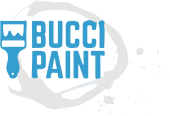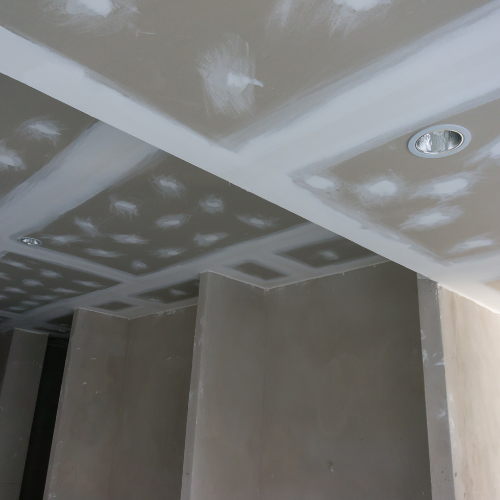Painting your home or business is a transformative step that breathes new life into any space. However, achieving a long-lasting, professional-quality finish starts well before the first brushstroke. In Evesham, NJ, where homes and commercial buildings range from historic to modern, surface preparation is especially important. Without proper prep, even the best paint can peel, bubble, or fail prematurely. Whether you’re planning to refresh your interiors, improve your curb appeal, or revamp your commercial space, taking the time to prep correctly makes all the difference.
At Bucci Paint, we care about every detail—our commitment is to provide beautiful, lasting results for families and businesses across Cherry Hill Township, Moorestown, Mount Laurel Township, Medford, and beyond.
Key Takeaway:
Proper surface preparation is the foundation for durable and visually appealing paintwork. From cleaning and sanding to priming and patching, each step plays a critical role in the final finish.
Understanding the Importance of Clean, Dry Surfaces
Surface Contaminants and Why They Matter
Dust, grease, mildew, and even invisible residues from hands or cooking can prevent paint from bonding. In towns like Southampton Township, where changing seasons can create fluctuating humidity levels, keeping surfaces clean and dry ensures your paint job withstands the test of time. Washing walls and ceilings using mild detergent or specialized cleaners is essential, especially in kitchens, bathrooms, and exterior spaces.
Dealing with Moisture-Prone Areas
Moisture can cause bubbling, peeling, and mold growth. Pay attention to areas like basements or bathrooms where water exposure is common. For walls previously affected by water damage, it’s crucial to allow complete drying before any priming or painting. If you’re tackling ceiling drywall repair after a leak, drying and sealing are vital.
Removing Previous Coatings and Finishes
Old, peeling paint or wallpaper must be stripped. Referencing resources like this home improvement overview can help you understand the underlying issues caused by improperly removed finishes. Use a scraper and sanding block for stubborn layers. For homes in Tabernacle, NJ with textured finishes or vintage wallpaper, extra care is often needed.
Repairing and Priming the Substrate
Patching Holes and Cracks in Drywall
Using spackle or joint compound to fix holes is standard, but sanding and feathering out edges is what creates a seamless look. If you’re wondering how to fix holes in drywall, the process varies based on the size and location. Local drywall installers near me are trained to handle everything from nail holes to large wall damage.
Priming Bare and Porous Surfaces
Bare drywall, wood, or masonry should never be painted without primer. In areas like Mount Laurel Township, where humidity swings affect material expansion, priming helps prevent cracking and peeling. Specialized primers can also block stains and odors, particularly helpful when dealing with older homes or commercial properties.
Sealing and Skim Coating Uneven Walls
A smooth base makes your final paint coat look sleek and professional. Skim coating is often needed after wallpaper removal or extensive patching. This step is a game-changer when working with home remodeling services near me in Medford, ensuring every wall is ready for a flawless finish.
Special Surfaces That Need Extra Care
Popcorn Ceilings and Textured Walls
Textured ceilings, often referred to as popcorn ceilings, require special attention. Painting over them without sealing first can result in patchy finishes or loosen the texture. In Moorestown, where many mid-century homes still have this feature, we recommend professional prep and paint strategies.
Wood Surfaces and Decks
Prepping wood involves sanding, cleaning, and possibly applying a wood stain or primer. For exterior surfaces like decks, proper preparation ensures your deck staining and sealing lasts through changing New Jersey seasons. Sanding is key for good adhesion, and sealing the wood protects it from moisture.
Concrete, Masonry, and Stucco
Painting over concrete or stucco requires curing time, cleaning, and in some cases, repair. In Cherry Hill Township, stucco homes need specific coating systems to handle freeze-thaw cycles. Patching damaged stucco or concrete ensures a smooth and long-lasting finish.
Flooring and Trim Considerations Before Painting
Protecting Installed Flooring
Before beginning any paint job, floors should be protected using drop cloths or plastic sheeting. Whether you have laminate, tile, or are scheduling vinyl plank floor installation in Evesham, floor care is crucial to maintaining cleanliness and reducing cleanup time.
Preparing Baseboards and Molding
Baseboards and crown molding often require sanding, caulking, and priming. These details bring polish to the final look and are best handled by experienced crown molding contractors. Painting trim with crisp lines requires attention to detail and the right tools.
Addressing Damaged Subfloor or Paneling
In remodeling projects, especially in Southampton Township, damaged subfloors or paneling must be fixed before wall painting. Buckling or uneven panels can affect wall alignment and final paint application, so it’s best to coordinate repairs early with your general remodeling contractors.
Priming Different Materials for Long-Term Results
Metal and Glossy Surfaces
Metal surfaces require a degreaser, rust removal, and a bonding primer. Glossy cabinets or doors should be sanded lightly and primed to ensure paint adherence. For commercial applications in Cherry Hill Township, commercial painters near me can ensure proper treatment of these challenging surfaces.
Faux Finishes and Decorative Paint
If you’re painting over faux painting, it may require extra sanding or a high-adhesion primer. These finishes can repel new coats if not handled correctly. It’s best to consult a specialist, especially for high-end or custom decorative work.
Wallpaper and Adhesive Residue
Wallpaper must be completely removed along with adhesive to prevent bubbling. Some adhesives become active again with moisture, so priming after removal is non-negotiable. Homes in Tabernacle with older wallpaper benefit from full removal and drywall skimming before painting.
Answering Common Questions
How long should I wait after priming to paint?
Most primers require 24 hours to fully cure, though some fast-drying primers allow paint within 1–4 hours. Always follow the manufacturer’s guidelines.
Can I paint over stained or sealed wood?
Yes, but only after sanding and applying a high-quality bonding primer. This ensures the paint sticks and doesn’t peel over time.
What tools are best for surface preparation?
A combination of sanding sponges, scrapers, putty knives, and cleaning cloths are essential. For larger jobs, power sanders or paint sprayers may be used by pros.
How Climate in Evesham Affects Painting Preparation
Humidity and temperature shifts in Evesham, NJ, influence drying times and product performance. Spring and fall are often ideal for exterior work, while interior jobs are less season-dependent. Moisture-prone homes should consider dehumidifiers during prep to ensure surfaces dry properly.
The Connection Between Prep Work and Paint Longevity
Proper prep is directly tied to how long your paint job lasts. Skipping priming or ignoring damage leads to early failures. Investing time in prep reduces future maintenance and enhances finish quality, saving money long-term.
Partnering with Local Experts Makes a Difference
Working with professionals ensures that each surface is handled with the right technique and materials. From Interior Painting to Exterior Painting, Bucci Paint delivers quality care. Whether you’re interested in Drywall Install, Molding Trim, or Deck Painting, our team in Evesham, NJ and surrounding areas is ready to help.

